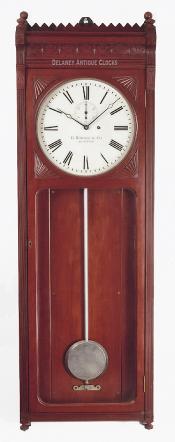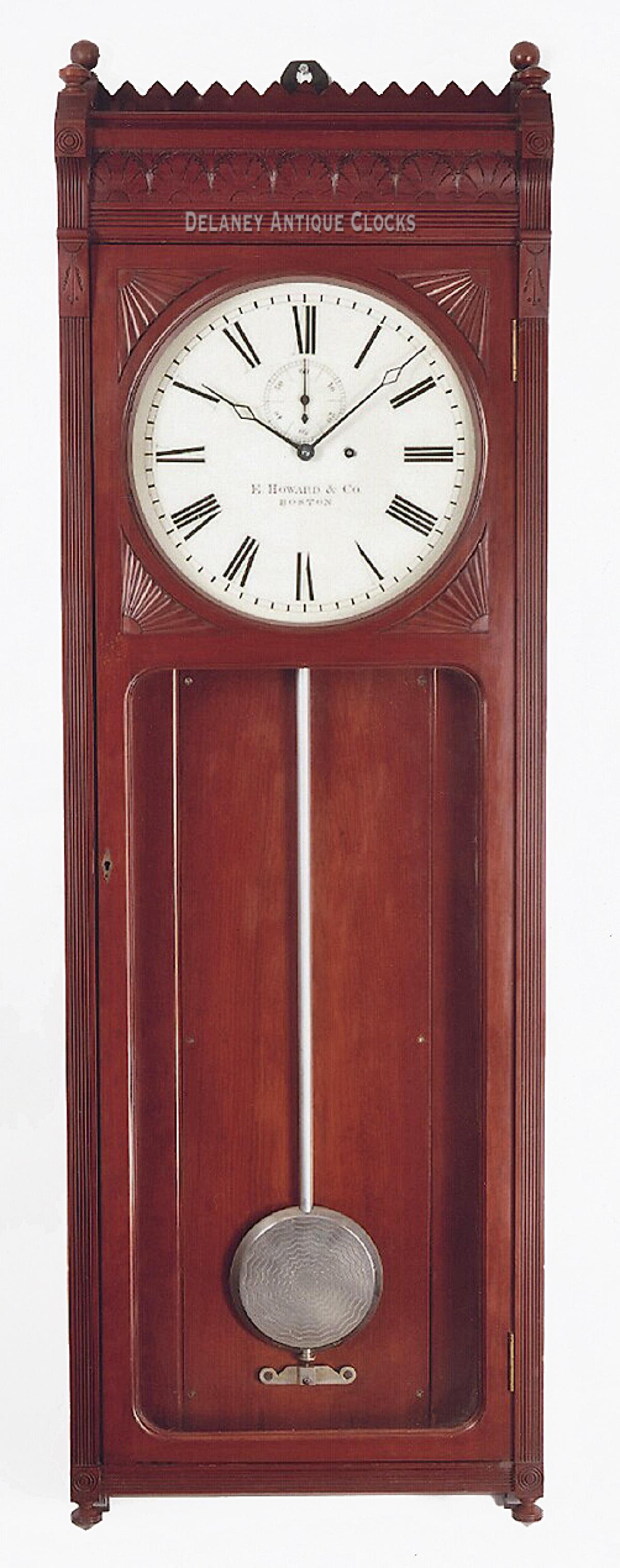E. Howard Model No. 72 Regulator. Dated 7-1884. 218005.
This clock was designed for excellent service. The weight-driven movement is die-stamped by the Maker on the front plate, “E. Howard & Co. Boston. No., 12.” It is designed with a Graham Dead Beat escapement, maintaining power, double suspension spring mounting, and a Geneva Stop winding mechanism. The brass movement is designed to run for eight days on a full wind. The pendulum rod is made of seasoned cherry and retains its original silver paint. The heavy bob is nickel-plated and features a damascened design or pattern on the front surface. The enameled zinc dial measures approximately 14 inches in diameter and is original to this clock. It features the Maker’s name, working location, and a true seconds spit.
The cherry case is nicely decorated with various carvings and retains its original finish. The construction of this case is designed to compensate for expansion and contraction as a result of changes in humidity and temperature. As a result, when these large regulator clocks are set up correctly, they vary only seconds a month. This example measures 5 feet 5 inches long and was made in July of 1884. It is dated in pencil inside the case on the top board.
The E. Howard shop records indicated that this clock was ordered through the Boston office on July 1st. It was shipped to William E. Gould, a cashier, to be installed in the 1st National Bank in Portland, Maine. This clock was ordered with a 14-inch dial with a block signature. The case was to be cherry. It was to be delivered by July 15th. The catalog states that this clock originally sold for approximately $85.
Inventory number 218005.
The E. Howard & Company succeeded the Howard & Davis firm in 1857. The Howard & Davis firm was comprised of Edward Howard and David Porter Davis and was established in 1842 in Roxbury, Massachusetts. Both men had just completed their clock apprenticeship under the guidance of Aaron Willard Jr in Boston. The Howard & Davis firm made high-grade clocks, precision balances, sewing machines, fire engines, and watches. After the dissolution of Howard & Davis, Edward Howard became Boston's leading manufacturer of weight-driven residential and commercial clocks. The firm also made a large number of tower clocks and watchman and salve clock systems. These sold well in the last quarter of the 1800s.
It has been said that the E. Howard Clock company never made an inexpensive clock, and everything they made was of very good quality. As a result, Howard clocks have become very collectible and are prized by their owners. Today, the E. Howard name enjoys outstanding name recognition.
For a more in-depth reading of Edward Howard and his various businesses, please read "Willard's Patent Time Pieces," written by Paul Foley.












